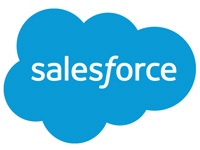
Salesforce last week launched the Lightning Partner Community, which lets business customers extend the features they provide their sales reps to channel partners.
Lightning Partner Community gives channel partners a single place to identify opportunities, track progress and close deals.
It includes the following:
- The Lightning Partner Experience, a mobile app that gives users relevant sales and pricing data;
- Integrated CRM for Partners, which extends CRM records, including leads, opportunities and accounts, in an intuitive workflow; and
- Salesforce Einstein for Partner Community, which leverages AI to provide users with recommended answers, knowledge articles and expert advice.
Lightning Partner Community now is available with the Partner Community Cloud License.
Salesforce CPQ (configure price quote) for Lightning Partner Community will be available generally early next year.
PRM at a New Level
“This looks like conventional partner relationship management on some recreational drug, which is a good thing,” said Denis Pombriant, principal at Beagle Research.
The PRM space has been fragmented for a long time because “devising a general purpose facility for multiple types of indirect channel has been monumentally tough,” he told CRM Buyer. Lightning Partner Community “may help by virtue of its platform-based ability to change and maintain apps.”
That’s precisely why Salesforce has launched this community.
The need for effective partner incentives is growing as channel partners become more important to high-tech companies, but money spent on partner incentives often does not deliver an appropriate return — and in many cases, it undermines the ability to generate growth, the company said, citing a 2015 Accenture report.
Lightning Partner Community replaces Partner Portal, a previous Salesforce product that “provided a limited use license and access into account/opportunity records on a shared deal,” noted Cindy Zhou, a principal analyst at Constellation Research.
Salesforce retired Partner Portal last year, she told CRM Buyer.
Going Mobile
“Providing the partner portal access and integration with mobile is the right strategy,” Zhou said. “More transactions are being conducted on mobile devices.”
Mobile apps “have direct integration with systems of record — customer records, support records, marketing campaigns etc.,” observed Alan Lepofsky, a principal analyst at Constellation Research.
“This makes it easier for developers to build applications that fit directly into business workflows,” he told CRM Buyer.
Lightning Community Pros and Cons
The significance of this announcement “centers around the integration of AI and community,” Lepofsky said. “When Community software can leverage AI to deliver personalized recommendations for the right content and experts, it leads to a more consistent and accurate experience.”
Lightning Partner Community gives resellers and partners visibility into real-time information logged in salesforce, and future integration with CPQ “can ensure accurate pricing and push through to quotes for customers quickly,” Constellation’s Zhou noted.
“One subsidiary issue that’s not discussed but that this announcement might foster, is building trust between the channel and the OEM,” Beagle’s Pombriant pointed out.
That has historically “been tough, especially around lead distribution and establishing primacy in a deal. Better apps can do a lot to make all of this automatic and reduce arguments,” he said.
“One thing I don’t see, which would be very useful, is the ability to trade apps through the exchange so that each vendor needn’t necessarily reinvent every wheel,” Pombriant continued. “That would provide significant ROI.”
Other PRM systems vendors, like Relayware and Impartner, are potential competitors to Lightning Partner Community, he said, but “I doubt other vendors have the same platform underpinnings.”























































